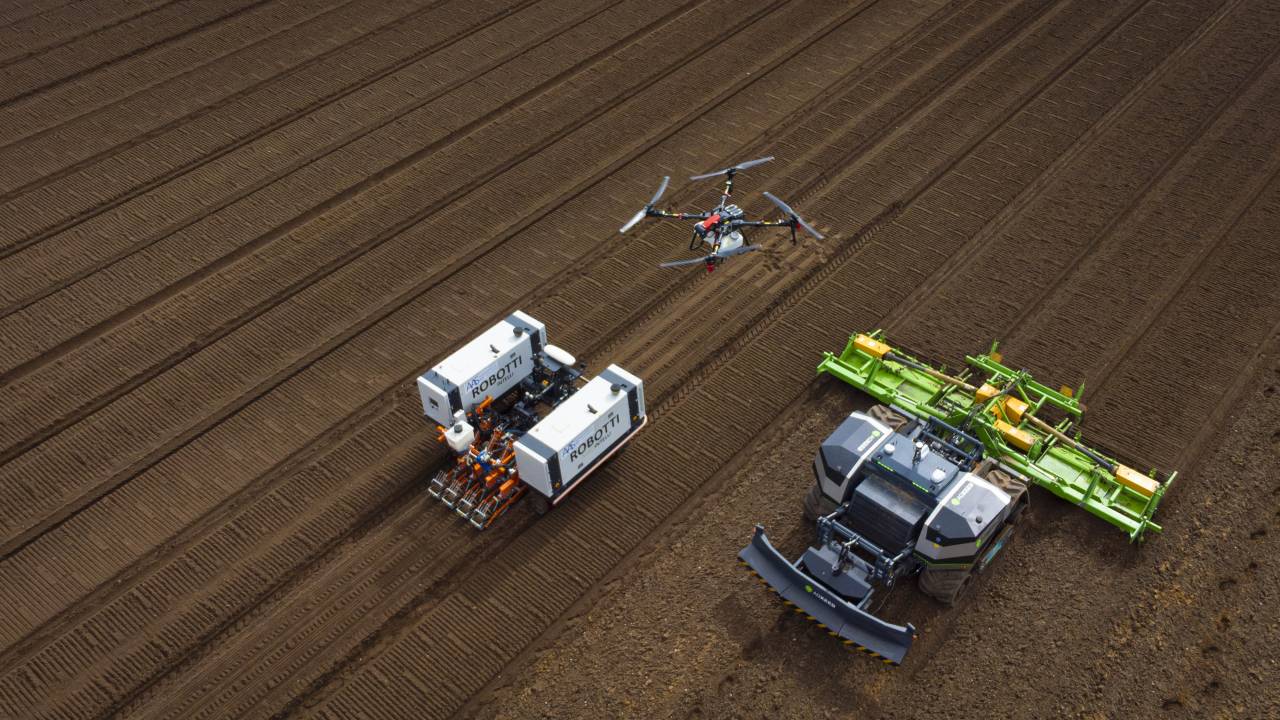Challenge
Reducing Carbon in Root Vegetable Production
AutoSpray Systems was a key partner in this groundbreaking project, which brought together a fleet of autonomous vehicles: the Agxeed AgBot for soil preparation, the Robotti Agro Intelli for precision planting, the Skippy Scout for regular monitoring, and the XAG P100 Pro drone for targeted aerial spraying. The XAG P100 Pro was specifically tasked with managing whole-field spray operations at later growth stages, ensuring applications could be made quickly and precisely without causing soil compaction or crop damage. This coordinated effort was the first time these systems had been seen working together in a UK field.
Solution
An Autonomous Partnership
Huntapac, a leading UK root vegetable grower, initiated an innovative project, funded by Marks & Spencer, to determine how the carbon output from a typical field of parsnips could be dramatically reduced. The core challenge was to replace heavy, conventional diesel machinery—which causes soil compaction and high emissions—with lightweight, autonomous robotic systems for the entire crop cycle. This required a seamless collaboration between multiple specialist, cutting-edge platforms, from soil preparation to crop care.
Innovation
Result
A Vision of a Low-Carbon, Sustainable Future
The project, described as “ground-breaking,” produced “staggering” preliminary carbon reduction figures. By replacing heavy diesel machinery with lighter, often electric platforms like the XAG P100 Pro, the system proved it could significantly reduce the carbon output of farming operations, improve soil health, and allow for more precise input application. This successful demonstration showcases how autonomous, low-impact drone technology is a vital component in creating a low-carbon, low-chemical, and truly sustainable farming model.
- reduction in CO2 output 46%
- reduction in fertiliser use 70%
- more class A parsnips than adjacent field 16%
Project Partners


